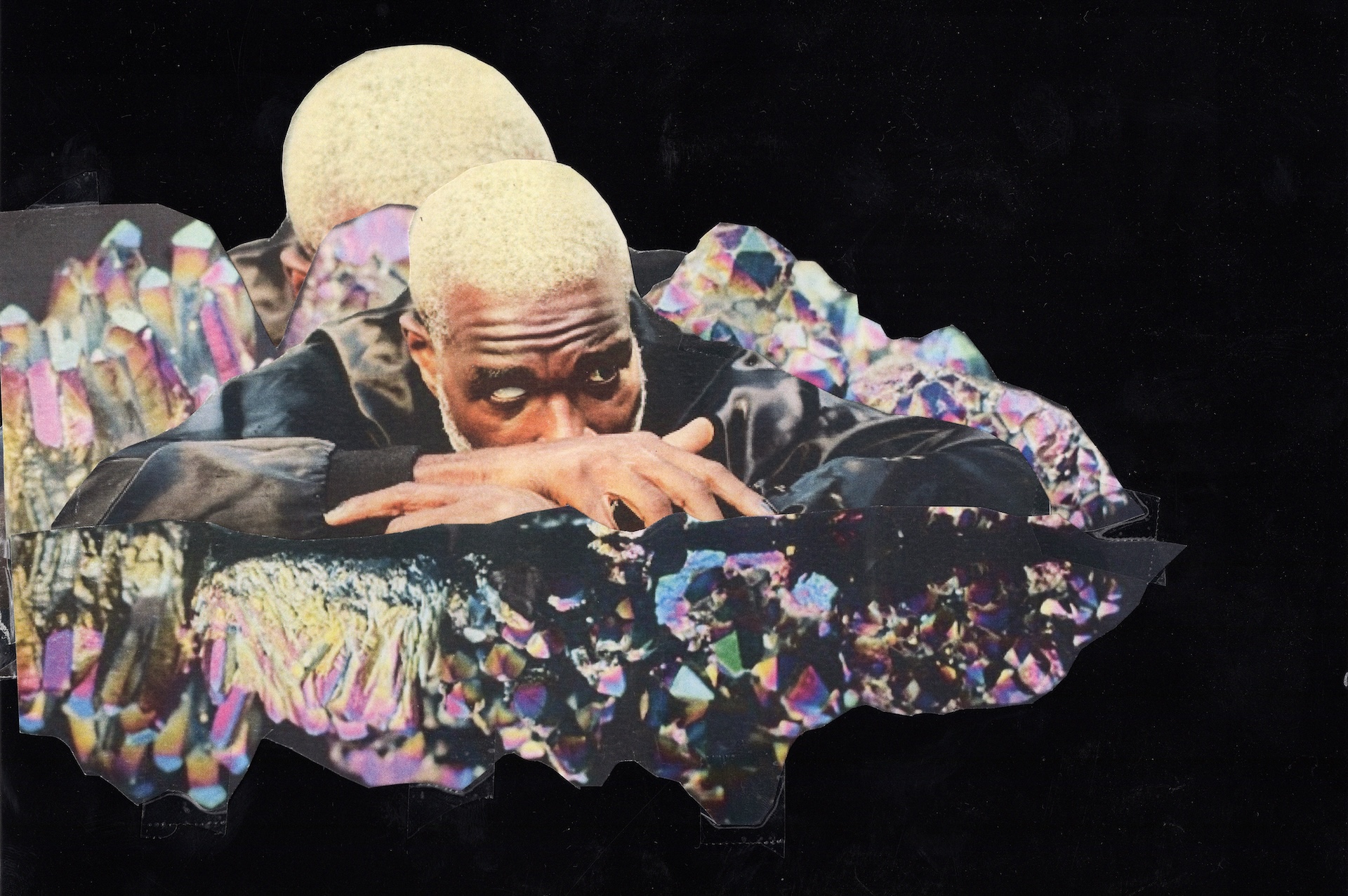Anything I say about “Magnetic,” the lead single off TV On The Radio frontman Tunde Adebimpe’s first solo album, Thee Black Boltz, won’t live up to hearing it for the first time. Go listen to it. Better yet, go watch the video. It’s super simple. It’s black and white and it’s basically just Adebimpe shouting this perfect song into his mic all in black—those muscles, that bleached hair—and a woman (dancer Brooke Shepherd) in white bouncing and flailing around a massive amp with her supernaturally long arms clapping, thighs pumping, dreads flying. It’s the perfect dance, whatever it is, for this perfect music, whatever it is. Every time it ends, I have the impulse to turn it right back on again. It feels like life. Or like life’s supposed to feel. “I was thinkin' 'bout my time in space/I was thinkin' 'bout the human race/In the age of tenderness and rage/Had me kickin' through the end of days.” If you’re not writing this as the opening to your opening song, why’re you even bothering?
My favorite part, right before the chorus, right after Adebimpe sings, “We’re gonna crash your matrix/And how you gonna feel about that?" has him following up with: “Why you wanna come like that”—and then a big, long pause—“for.” The chorus goes nuts. “Magnetic” is a great representative for this entire album, which gives space to whatever it wants.
Thee Black Boltz flickers between both dark and light, but the overarching feeling I got from it was of an artist deftly careening through various eras, sometimes within the same song, sometimes within his own voice. “Ate the Moon’s” industrial rock sounds like it wouldn’t be out of place on a superhero movie soundtrack from the early ‘00s, before it morphs into a kind of Peter Gabriel throwback. “Pinstack” is like if Fastball were actually good, though this particular track tickled me most because of its brief quotation of “Swinging on a Star” (which always just reminds me of Hudson Hawk). “The Most” sounds like a new-wave track straight out of the ‘80s before dropping into, what is that, reggae? (Dancehall, actually, a sample of “Under Mi Sleng Teng.”) If “Somebody New” isn’t a club hit I will be surprised, I got Robyn vibes from that one but also … video game music? “God Knows” is next to “Magnetic,” probably my favorite for its unexpectedly twangy spacey chorus which … maybe it reminds me of Beck?
I wish my references were better, but part of Adebimpe’s intention here was to make the album anything you want it to be. “It feels like the kind of mixtape I would have given to somebody in high school and said: ‘Here’s a couple of my favourite bands,’” he told The Guardian. “It all hangs together because the sentiment is: This is a gift for you.” Anyone who was lucky enough to get mixes in the ‘90s knows you make of them what you want, and it’s because of one particular mix my best friend’s older boyfriend gave me that I can’t hear “Everywhere” by Fleetwood Mac without expecting Iggy Pop’s “The Passenger” to clang in right after. It’s unsurprising that Adebimpe would be able to tap into something like that.
If you know him already, you probably know him from TV On The Radio, a band Eric Drucker at The Ringer joked “are often called ‘art rock,’ a nebulous description that has been used over the decades to describe bands including Roxy Music, the Talking Heads, and Radiohead.” Adebimpe did look like he was on a break from his PhD when he blew the roof off Letterman’s show in 2006 with a kick-ass performance of “Wolf Like Me.” TV On The Radio’s eclectic taste veered from Prince to Earth, Wind & Fire to Nancy Sinatra to Serge Gainsbourg. But I knew none of this before. I was first exposed to Adebimpe in Rachel Getting Married, Jonathan Demme’s 2008 film, which mainly plays as a gritty indie Oscar bid for Anne Hathaway, who chewed up the scenery as a recovering addict bent on destroying her sister’s wedding. Adebimpe played the sister’s husband-to-be. As Sydney, he stuck out, the calm in the storm who unexpectedly sings a soft, pretty acapella version of Neil Young’s “Unknown Legend” during the ceremony. He seemed like a guy who could make everything better. A grounded and grounding man.
Thee Black Boltz carries this same spirit. The irony being that it comes from a period of serious upheaval for Adebimpe. All around the same time Adebimpe wanted to quit music, his younger sister died, and his entire musical archives were stolen. In 2019, he and his band had been together for two decades and were opening for Weezer and The Pixies at Madison Square Garden. Of that time, Adebimpe told The Guardian: “There’s a point where I had a very weird feeling of, like: ‘I think I’m done.’ I think I’m just done listening to music. I don’t give a fuck about bands. I just want silence … as much as I can get it.”
So the tour concluded and he turned off the music and turned to art. But then came the itch again. “It’s like a patch of weeds that you clip,” is how Adebimpe explained it. “Things grow back, and thoughts grow back, and you hear melodies. I started having fun again, I was really trying to go back to zero.” And he was literally forced to when 15 years of archives were stolen suddenly from the LA garage where he makes his music. All that he had left was a 4-track and a box of tapes from between 1998 to 2008 with a bunch of half-finished songs. That explains at least in part the time-traveling quality of Thee Black Boltz. “Since I had only the 4-track to record with, I started playing around with it and writing demos on it,” Adebimpe told the Los Angeles Times.
In the midst of all of this, Adebimpe was grieving. His sister, Jumoke, suddenly died of a heart attack during the pandemic. As the only family member nearby, he was in charge of all the arrangements. No wonder his song for her breaks through the middle of Thee Black Boltz. “ILY,” a soft unassuming ballad—plucked guitar, voice deep and calm, a beat like a heart—is so different from the rest of the album that when I first heard it, I thought Spotify had rolled into The National by mistake. It has that same low-key, kind of out-of-step quality, almost verging on a lullaby. It is the loveliest song on the album, and it made me cry when I realized he wrote it for his sister. The way his voice strains on the line, “We could glow bright as the sky when the star hits the sea” and the ghostly repetition of “Oh I love you love you love you"—it’s love sublimated into music. “ILY” lasts less than three minutes, but that’s long enough to tear open your heart. It’s a privilege to hear, and apparently Adebimpe felt the same about writing it: “She’s my best friend and I’m glad I had a place to put that.”





